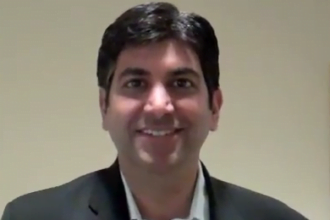
Have you noticed all the articles in the health care press lately touting health information technologies’ ability to increase patient medication adherence? Smart phone-based apps, Smart pill bottles and Patient Portals are all about trying to get patients to do something which some physician somewhere has deemed to be the right thing for the patient to do.

Have you noticed all the articles in the health care press lately touting health information technologies’ ability to increase patient medication adherence? Smart phone-based apps, Smart pill bottles and Patient Portals are all about trying to get patients to do something which some physician somewhere has deemed to be the right thing for the patient to do.
Chalk these high-tech patient reminder solutions up to just another well-intentioned but misguided attempt by HIT vendors at patient engagement…one not likely to be met with much long-term success. Sorry folks.
The fact is that these high-tech solutions, like physicians, still talk about non-adherence as if it is all the patient’s fault. Come on …you have to admit that’s not a very engaging “message.” You know…patients don’t fill (refill their prescriptions), patient don’t take their meds are directed, patient forget, and so on. According to people much smarter than I am about such things, this perspective is outdated.
Many researchers now argue that patient non-adherence is more often the result of ineffective patient communication skills and not “disengaged, lazy or forgetful patients.” One study showed that 19% of patient non-adherence was attributable to poor physician communication with patients.
It is also worth noting that there are two types of patient non-adherence – intention and unintentional…only one of which is addressed by these high-tech solutions. In this post I want to focus on the intentionally non-adherent patients (the one not addressed by the reminders) . After all, only bad or stupid people would intentionally go against something that clearly is their best interest…right?
Wrong. As it turns out there are lots of legitimate reasons (from the patient’s perspective) for non-adherence.
Here are the main reasons cited in the literature:
- The patient doesn’t agree with the diagnosis necessitating the prescription
- The patient believes the diagnosis but doesn’t think the diagnosis is serious enough to merit taking a new medication prescription
- The patient doesn’t believe in taking medications
- The patient believes the risks associated with the medication outweigh the benefits
- The patient doesn’t believe the medication will work
- The patient can’t afford the medication
 Think about your recent physician visits, where your clinician prescribed a new medication. I’ll bet one or two of the above “reservations” flitted across your mind. I’ll also bet that your provider never once asked how you felt about taking the prescribed medication. I’ll even go out on a limb and bet that most of you never mentioned your reservations to your provider either.
Think about your recent physician visits, where your clinician prescribed a new medication. I’ll bet one or two of the above “reservations” flitted across your mind. I’ll also bet that your provider never once asked how you felt about taking the prescribed medication. I’ll even go out on a limb and bet that most of you never mentioned your reservations to your provider either.
Don’t believe me? Then consider this factoid. When prescribing a new medication, the average primary care physician spends less than 50 seconds teaching (too strong a word) patient about the medication, e.g. why they need it, how to take it, how much to take, when to take it, indications and contraindications, when to stop and what to do when you stop. That’s not much time for the physician to say everything that needs to be said (which doesn’t happen). Nor does it leave time for the patient to say much.
Since most patients are reluctant to interrupt or contradict their clinician, many if not most of the concerns patients have about taking the new medications are never voiced. Rather, patients just go home and never fill the prescript.
So now help me understand how my patient portal or smart phone app can engage me by implicitly blaming me for not taking my medications. Or motive me to take my medications when I don’t believe that they are not necessary or that they may be worse for me than the problem they are intended to solve.
Patient adherence is much more likely to occur when the patient and clinician agree on the basics, e.g., the diagnosis and treatment. That requires a conversation or two or three. The goal of effective clinician-patient communication is to resolve such disagreements. And that is why the solution to patient non-adherence lies in developing the patient-centered communication skills of clinicians…not in trying to cajole patients into using some new app or patient portal that totally ignores their concerns and beliefs.
All together now…patient adherence (and engagement) are a physician-patient communication challenge…not an HIT challenge.
That’s what I think. What’s your opinion?
Note: Later this Summer, Mind the Gap will be announcing the Adopt One! Challenge TM. for physicians and their care teams. The goal of the challenge is to encourage physicians and their care teams to adopt one new patient-centered communication skill within 2014.
Sign-up to learn more about this one-of-a-kind “Challenge”:
Sources:
Koenig, C. J. (2011). Patient Resistance as A in Treatment Decisions. Social Science & Medicine (1982), 72(7), 1105-14.Johnson, J, et al. (2005) Factors Associated with Medication Nonadherence in Patients With COPD. Chest. 128(5).
Wilson, I. et al. (2007). Physician – Patient Communication About Prescription Medication Nonadherence: A 50-State Study of America’s Seniors. Journal of General Internal Medicine. 22(1), 6-12
Johnson, J, et al. (2005) Factors Associated with Medication Nonadherence in Patients With COPD. Chest. 128(5).
Zolnierek, H. et al. (2009) Physician Communication and Patient Adherence to Treatment: A Meta-Analysis. Medical Care. 47(8), 826-834.
Sarkar, U., et al. (2011). Patient-Physicians’ Information Exchange in Outpatient Cardiac Care: Time for a Heart to Heart? Patient Education and Counseling, 85(2), 173-9.
image: patient/shutterstock
![]()









